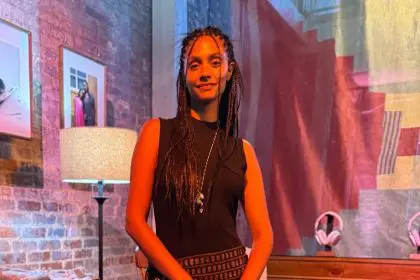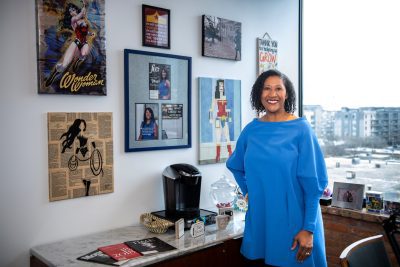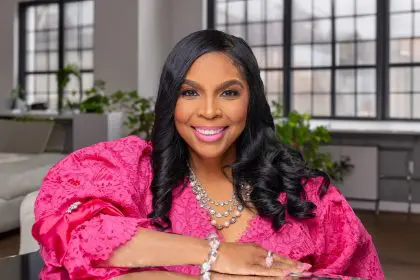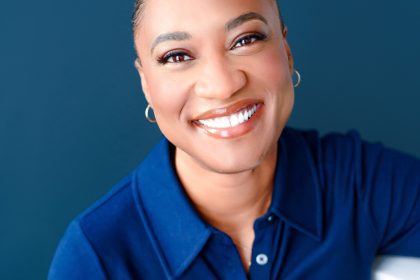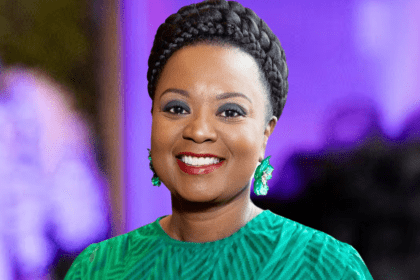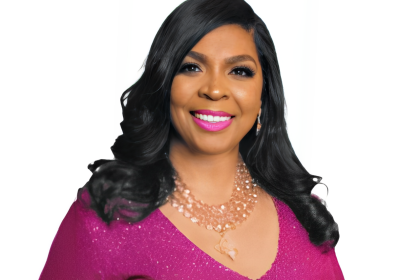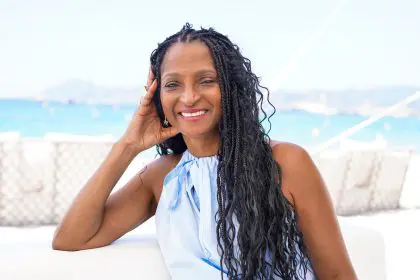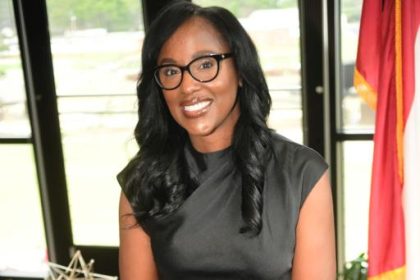From orchestrating President Obama’s reelection engagement strategy to earning the nickname “NBA’s Other Coach” during her six years as an NBA executive, Alexys Feaster has spent over two decades proving that sports transcend entertainment to become powerful tools for social change. Now, as founder of The Kinship Advisors, she’s assembled her most ambitious team yet, one focused on holistic development of athletes, entertainers, and influential organizations while creating platforms for women’s voices in male-dominated spaces. Her recent work as producer of “Hoops, Hopes & Dreams” exemplifies her philosophy that basketball, like politics, has the unique ability to unite diverse communities around shared goals.
How did your experience working on President Obama’s campaign shape your current approach to community building?
Working with President Obama from the beginning gave me a front row seat to watching not only the President play basketball, but the way that he would go into communities and really build connection by playing the game. I was the mastermind behind the storied engagement strategy for President Obama’s reelection campaign, creating collectives like DJs for Obama with D-Nice and various political and social good digital campaigns.
What I learned is that you can sit in an arena and have different political views or different perspectives on life and still be able to cheer for the same team. We all know that, right? Knowing that as a concept and knowing it because we experience it, I think sometimes we need a reminder, especially in the climate we’re in right now. There’s not much that separates us, and if we can use the game as a connective point, then we can use that as a way to build relationships, build rapport, make an impact.
What inspired you to transition from the Obama administration to the NBA?
The transition felt natural because the work was similar—it was about meeting people where they are and building authentic connections. At the NBA, I spent six years in Player Development, earning the nickname “NBA’s Other Coach.” I helped over 450 NBA players outside of the game by creating wellness programs and initiatives to enhance their life skills and leadership development.
For the NBA, I created and hosted the conversation series “Where Do We Go From Here?” as an outlet for players to discuss collective change with activists and impacted families after the murders of George Floyd and Breonna Taylor. It was about providing a platform for athletes to use their voices meaningfully, just like we did with political engagement during the Obama years.
Tell us about The Kinship Advisors and your vision for athlete development.
The Kinship Advisors is about providing clients with coaching and resources beyond their respective platforms and collaborating on how to engage as leaders in business, community, and as advocates for impact. My work involves the holistic development and expansion of athletes, entertainers, and people or organizations of influence.
I’ve led strategic legacy building for various NBA All-Star players, including two-time Olympic gold medalist Jrue Holiday, while currently working with top college athletic programs to reimagine and reshape what success looks like for the college athlete. We’re not just talking about performance on the court—we’re talking about developing leaders who can impact their communities long after their playing days are over.
How are you creating platforms for women’s voices in sports?
I provide a platform for women’s voices as the Executive Producer of the podcasts NETLIFE with Dawn Staley and TEA with WNBA stars and Olympic gold medalists A’ja Wilson and Napheesa Collier. I always come from that lens as a woman, as a Black woman, as a person who’s in these different rooms that are mostly male dominated.
When we were working on “Hoops, Hopes & Dreams,” I was very focused on how we incorporate the voices of women in these stories. Even though we have footage of WNBA players and others with their different perspectives, it was really amazing to be able to tap someone like Jemele Hill, who is really a historian too. That was a very proud moment for sure.
What does leadership look like in your current work?
We don’t need Dr. King or President Obama to be our savior. We can all be saviors, and we can all be that person in our own way and in our own impactful ways within our communities and individually. I’m hoping that this will spark that for us to really put a mirror up to ourselves, and it did for me. It really put a mirror for me to say, not only am I doing enough, but what more can I do to unify.
The lessons are mirrors to me, how do we ensure that we are constantly shooting our shot? How are we taking those leaps? How do we take a risk to stand up for other people and take a risk to build community with others who might not look like me? Let’s all shoot our shot.
How has your DC background influenced your approach to creating change?
I’m from Washington, DC. Growing up in DC, I took a lot of pride being in a city where I was able to see my first black mayor, Marion Barry, all the way to working for the first black president, President Obama. Growing up with Marion Barry as my mayor, and yes, the mayor at the time had mishaps, but we didn’t care. We were like this is the mayor of the people of our community.
Throughout my entire life living in DC, I was able to tap into that on many different levels. It’s about being leaders who are really focused on going out to the community to get feedback. That’s what we all did, we understood the importance of being accessible and meeting people where they are.
What challenges do you face in male-dominated spaces, and how do you navigate them?
Being in these different rooms that are mostly male dominated requires a different approach. It’s about proving your value through results and building authentic relationships. During my time at the NBA, I had to establish credibility by delivering programs that actually made a difference in players’ lives.
The key is not trying to change who you are to fit into these spaces, but bringing your authentic perspective and showing how it adds value. When I worked with Reggie Love and Michael Strautmanis on various projects, they were people I worked with every day, and we built that trust through consistent collaboration and shared goals.
What’s your vision for the future of sports and social impact?
We’re in a time now where we’re not seeing leaders like Dr. King or Malcolm X putting their life on the line the way we used to see in the ’60s, and there’s a lot of differing opinions about that. Who is our next person that’s gonna take us across the finish line? I don’t know the answer to that. We talk about it all the time, who’s going to be the next person?
But I think the answer is that it doesn’t have to be just one person. We can all be that person in our own impactful ways within our communities. The work I’m doing now is about empowering the next generation of leaders to understand that they have the power to create change, whether they’re on the court, in the boardroom, or in their communities. It’s about shooting your shot and building bridges through the universal language of sports.


